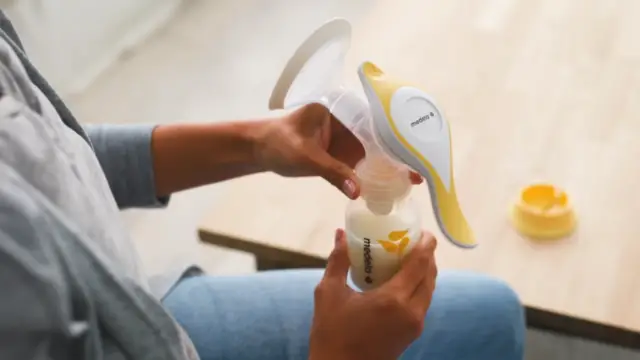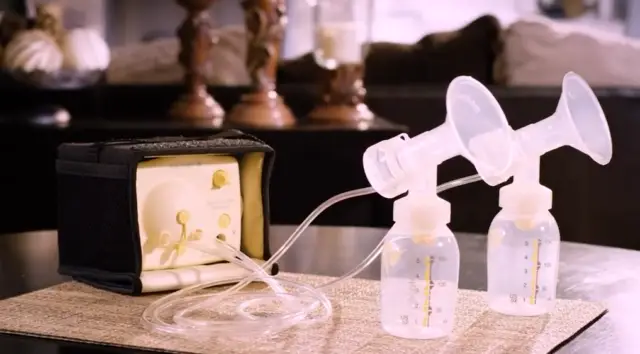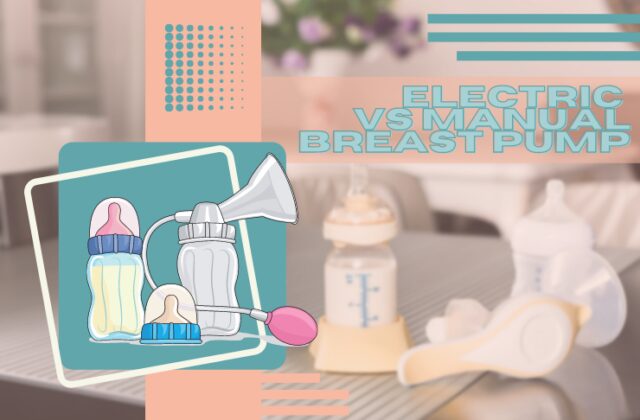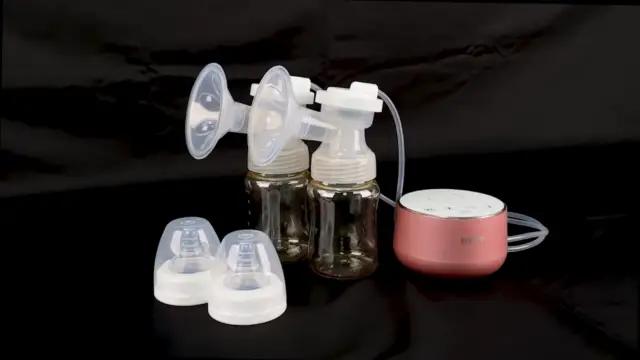Is motherhood your first experience? Are you confused about which breast pump you should go for? Your confusion is genuine because lots of baby and mum products are available these days, and choosing the right one is really very challenging. It isn’t easy to select the one with the electric or manual pumps. Don’t worry; we are here to help you.
Main Difference Between Electric Or Manual Breast Pump
You should know the difference between both breast pumps, because if you know a significant difference, how they both serve you can help you buy the best for yourself. We’ve done extensive research and borrowing from MotherhoodHQ’s comparison, you’ll be well informed on all the types of breast pumps available.

- Manual Pump: Manual breast pumps do not require electricity to operate. These are hand-operated, and they can be worked on one breast at once. To use this pump, you need to set it over the breast and use your other hand to ‘pump’ the lever in order to create suction. Manual pumps are less expensive as compared to electric and are very light in weight and durable. If you have a tight budget and are looking for a long-lasting product, this is for you!
- Electric Pump: These pumping machines require a power source to operate like a power outlet or a battery. Some models allow you to use both breasts at a time. You need to place the cup over your breasts, and the suction will be created itself. This will enable you to use one hand for other tasks or simply relax. An electric breast pump is essential for mums who express themselves daily or occasionally.
Both pumping products are very efficient in drawing milk for storage and bottle-feeding. The best pump for you will depend on your lifestyle, budget, and pumping schedule.
Another factor That Will Help you To Right One
It is essential to consider many factors when deciding between electric and manual breast pumps. We have done all of the research for you on this topic. We will provide all the facts to help you make the right decision for yourself.
How Often Will You Be Pumping?
Many mothers won’t pump on a regular basis. They intend to breastfeed their babies and don’t anticipate long separations. A manual pump is enough for mothers who don’t plan to pump daily.
If you are a working woman who wants a complete balance in your daily routine, then an electric pump can be a lifesaver by saving you lots of time in breastfeeding or pumping. It allows them to express milk faster than a manual one.
Budget
This is one of the essential factors that you should look for. As we mentioned earlier, electric pumps are costly. If you want to purchase without hurting your pocket, then a manual pump is the right choice for you. Some inexpensive pumps don’t have enough suction or break easily to produce adequate milk, so make sure not to buy low-quality pumping devices. It would be best if you looked for quality along with your budget.
Portability
Although electric pumps can be taken with you to work or on vacation, they are not as movable as manual pumps. These pumps are lighter and smaller in size. You can still express milk even if there is no power outlet nearby or your battery runs out.
An electric breast pump is a good option if you have a large amount of milk to express. They are easy to pack and can be taken on the road. Many models come with obscure bags to help you carry everything around when you are outside.
 Feel
Feel
Pumping devices all work together towards the same goal to feel similar.. but still, there are differences among breast pumps. In manual pumps, you can manage the speed and strength of each pump by yourself. This will allow you to be in complete freedom of controlling the device as per your comfort, and you will feel more comfortable because here, control of all processes is in your hands.
The electric breast pump provides steady, consistent pumping. They offer more suction than manual ones and those powered by batteries. These pumps will alternate between suction and discharge. This is different from breastfeeding, and it might be pretty uncomfortable for you.
Note: Pumping can cause discomfort for a few seconds. However, pumping shouldn’t feel painful. Reduce the suction if you feel pain. You can reach your lactation consultant if you feel any pain.
Noise Level
It’s essential to feel at ease with your pump when you are on the go. Many pumps can be noisy and unmanageable, but others are quieter. Manual breast pumps are silent because there is no motor to pump the milk. Some models may sound when you pump, but it is likely to hear the squeak. Even hospital-grade electric breast pumps can be loud. When the pumps perform, it is expected to listen to the motor that generates whirring and sucking sounds.
Ease of Cleaning
Mums already have too much mess to clean, then why take extra? So it would help if you also looked for ease of cleaning; it can be challenging to clean manual breast pumps because of the various separate parts like breast covers, bottle attachments, and breast covers. To get the best results and be safest, wash all parts thoroughly between each use.
Is it possible to find joy in cleaning plastic parts of different sizes and shapes several times per day? We don’t believe so. If you also think then choose electric pumps. There are no extra components or tubes to clean. These pumps are the easiest to clean. The only parts you need to be concerned about are the tube, the flange, and the container.
After each use, you can easily separate these parts, and either wash them manually or put them in the top rack dishwasher. After cleaning, it is ready to use for another go.
Bottomline
Buying the right breast pump is all about understanding your needs as a mom. You may be interested in electric breast pumps if you will only be pumping and wish to maximize your flexibility during your breastfeeding journey. A manual breast pump is best if you’re not going to be away often and only occasionally need to pump. Look for your needs and prioritize what you need.











